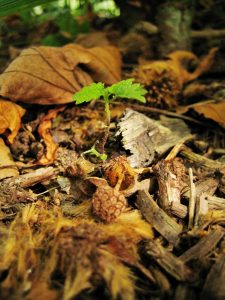I’m exploring here my desire to be witnessed in movement practice and what seems to happen when I experience being witnessed. I acknowledge that the developmental root of this desire is within the mother/child dyad – the need for the mother’s gaze. If there is any sense of lack arising from this need, it can lead to a longing for “being seen” – a sense of want based on longing and lack. I know this longing well, and it has affected my relationships with important others all my life. But I have already said that I want to take desire beyond longing and lack. I am curious – is my desire to be witnessed just about longing and lack? – or is it more than this?
It doesn’t feel like a longing – it feels like a desire. Partly this is because I have increasingly given myself the opportunities to experience it. There is a sense of the excitement – frisson – about being witnessed when I move. I know it will be a different experience from when I am moving within a group without having a focused witness. It is also different from moving within a public context where I am noticed and watched by others. There is some similarity to when I am performing for an audience – certainly then there is a sense of intensification – but I don’t have to be performing to feel these effects.
Movement practice is not therapy. It feels very different to me, even if there are therapeutic outcomes that can arise from it. So, let me try to distinguish having the attention of a therapist from having the kind of attention I am talking about.
As a dramatherapist, I have developed some understanding of the effects of therapeutic witnessing. There is, of course, the sense of holding, receiving and supporting, which relates to the developmental roots mentioned above. It’s an important function of the therapist role – to give the client a healing experience of being seen – and this is on-going in both one-to-one and group therapy. But, in a therapy group, I have noticed something more than this can arise. What I have experienced when being actively witnessed in a therapeutic group setting (the focus of the group is on what I am expressing) is an intensification in what I am feeling and a heightened focus in what I am doing. It suddenly feels more “real”. I believe I become more connected to myself as well as to the context I am in. I have talked about this in the past with my dramatherapy students, and they have reported a similar experience.
Witnessing, of the kind I desire, means giving agreed, gentle and curious attention from a kind of distance. The witness has no particular desire to affect the actions of the person being witnessed. They have no particular agenda for the other within their role – although, just by witnessing, they do affect them.
I had a lovely experience recently of being witnessed in a movement group. The instructions to the witness were to allow and witness the other’s “complexity” as they moved. I felt the usual “frisson” and also an intensification of my awareness and focus. But something more than this began to happen – I felt free. And with this a kind of playful joy arose. Was it my complexity being “allowed” that enabled this? Was it the quality of the attention my witness gave me? Was I just at that place in my own process where this could happen? Or a complex mixture of all of these?
The context of a group seems a factor in what I experience – whether the witness is another in the group, or the group, itself, is witnessing. Is this about having a social context? – about the primal group (family)?
